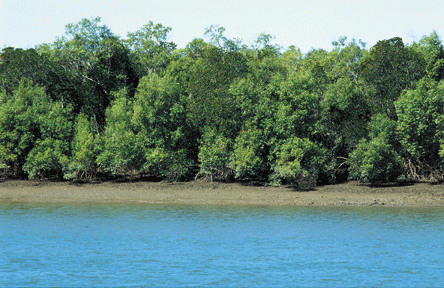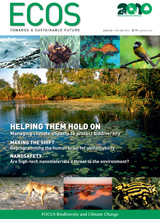
|
Published:
Coastal ‘bioshields’ no defence against tsunamis
Belts of coastal trees that were previously thought to reduce the damage caused by tsunamis might do more harm than good, an international team of scientists has reported in the journal Conservation Letters. They say planting alien trees, or ‘bioshields’ along exposed coastlines has the potential to destroy local ecosystems, create a false sense of security, and take resources away from more effective coastal defence projects.

|
|
Mangroves may not stop a tsunami but they do provide other important ecological services. Credit: iStockphoto
|
In the wake of the Indian Ocean tsunami that struck in 2004, there was a large scale effort to plant belts of foreign trees along exposed coasts to protect local communities from future storm surges. However India’s Dr Kartik Shanker – one of a team of researchers from Australia, Bangladesh, Belgium, France, Guam, India, Sri Lanka and the USA – says bioshields are destroying sand dunes which, he says, can provide more effective protection against water surges than introduced trees.
Dr Andrew Baird of the ARC Centre of Excellence for Coral Reef Studies at James Cook University, Queensland, says the focus should be on education, early warning systems and evacuation planning to prevent loss of life from future
tsunamis or storm surges.
The researchers says there is still benefit in conserving local endemic vegetation such as dense mangroves, which provide a wide range of other ecological services.



